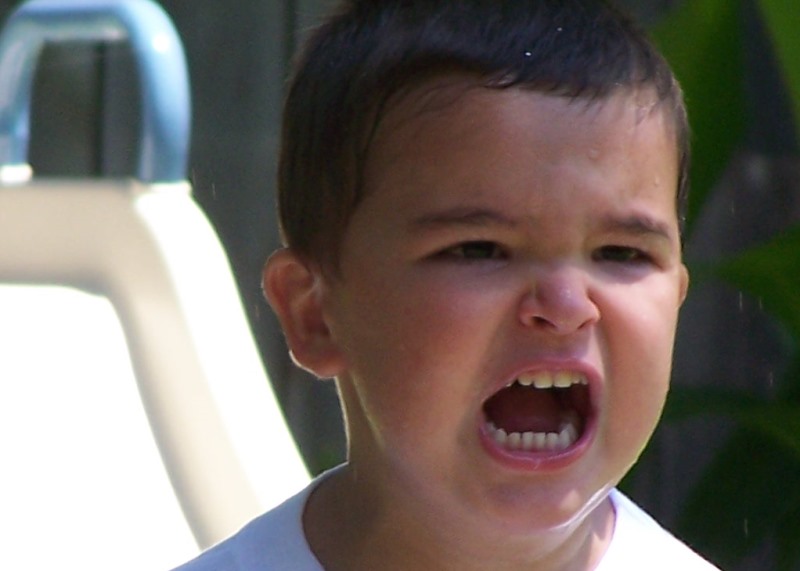Kids emotional development involves learning to Anger Management for kids effectively, promoting overall well-being by teaching constructive coping mechanisms. By teaching parenting techniques and anger management strategies, parents play a critical role in helping children control their anger. We can assist children in developing strong emotional intelligence by teaching them how to express their feelings and handle frustration in healthy ways. It’s crucial to teach kids how to restrain aggression and direct their rage toward constructive endeavors. Children who learn effective anger management techniques can be given the skills they need to deal with difficult circumstances. We empower children by teaching them the necessary abilities so they can manage their emotions, learn to control their anger, and develop healthier relationships as they grow up.
Anger Management for Kids
Introduction
Anger is a completely normal and natural emotion that all of us experience, including children. It’s like feeling happy, sad, or excited. However, when kids have a hard time managing their anger, it can lead to disrespectful and aggressive behavior, which is not good for them or those around them. The good news is that anger is controllable, and as parents or caregivers, we can help our children learn how to deal with their anger in a healthier way. By teaching them essential anger management techniques, we equip them with crucial life skills that will help them face any problem or negative emotions they encounter throughout their lives.
1. Talk About Feelings


Also Read: 5 Essential Social Skills Every Child Should Develop for Success
At a young age, children may not fully understand what to do with their anger. They might not know how to express themselves properly, and this can lead to outbursts and tantrums. As parents, it is essential to encourage our kids to talk about their feelings openly. By giving them a safe space to express themselves, we reduce the chances of their anger building up inside. When a child feels that they are heard and understood, it helps release the tension they feel. To guide them, we can use simple sentence structures like
“I feel… , when you…, because…, I need….”
For example, a child can say, “I feel angry when you don’t let me play with the ball because I really want to play with it.” In the beginning, parents can ask questions to help their child form the sentences. With time and practice, children will learn to express themselves independently.
2. Use Coping Techniques
Teaching coping techniques is another effective way to help children manage their anger. Coping techniques are like tools that kids can use to deal with their emotions when they feel upset or angry. Some coping techniques include deep breathing, counting to ten, drinking water, or engaging in a favorite activity. Deep breathing is a powerful tool that can help calm down the body and mind. Encourage your child to take deep breaths when they are feeling angry or upset. You can also practice deep breathing together as a family to make it fun and engaging.
3. Divert Their Anger


Also Read: Ways to Relax and Beat Stress- 10 Quick and Easy Tips
Sometimes, despite using coping techniques, a child’s anger may still escalate, leading to difficult situations. In such cases, it’s crucial to remove the child from the triggering environment immediately. Creating a “Time Out” space can be an effective way to give the child a chance to calm down. Find a quiet and safe spot in the house where your child can go to cool off for a few minutes. The goal is not to punish them but to allow them to take a break and reflect on their emotions and actions. While they might protest or be upset at first, over time, they will learn to calm down more quickly and become more receptive to resolving the issue calmly.
4. Praise and Positive Reinforcement
When children make an effort to manage their anger or successfully use coping techniques, it’s essential to praise and acknowledge their efforts. Positive reinforcement goes a long way in motivating children to continue practicing healthy anger management skills. Celebrate their progress, no matter how small it may seem. Offer words of encouragement and show them that you are proud of their efforts. Sometimes, a small reward or treat can also serve as positive reinforcement, reinforcing their good behavior. This positive approach will encourage kids to rely on these skills to manage their emotions effectively, leading to a decrease in anger outbursts and the need for punishment.
5. Lead by Example


Children learn a lot from observing their parents and caregivers. If they see adults handling anger in aggressive or inappropriate ways, they are more likely to imitate those behaviors. It is essential for parents to set a positive example for their kids. Try to manage your own anger calmly and constructively. When facing challenging situations, demonstrate healthy ways to cope with frustration and stress. If you do lose your temper at times, don’t hesitate to apologize and explain how you could have handled the situation better. By modeling appropriate anger management strategies, you show your child how to handle their own emotions effectively.
6. Seeking Professional Help:
In some instances, despite constant attempts to put anger management techniques into practice, a child’s anger issues may remain or increase. It is a proactive move to seek guidance whenever these situations exist. An experienced child psychologist or counselor can offer specialized ways to properly deal with the anger as well as critical information about its root causes. These experts can perform evaluations to find any underlying psychiatric problems or developmental parameters that are causing the anger. Parents and kids can be taught specialized skills and tactics to control and deal with anger in a healthy way with expert assistance. Keep in mind that asking for professional assistance is not a sign of failure but rather a responsible and considerate way to ensure a child’s emotional wellbeing.
7. Developing Emotional Intelligence:
Teaching kids how to control their anger has a big impact on how emotionally intelligent they become. Children gain important abilities that go far beyond anger management by learning how to identify, understand, and control their emotions. They are more ready to handle challenging situations in life, settle issues, and create stronger relationships over the course of their lives if they have emotional intelligence. Children who regularly use anger management strategies improve their awareness of their emotional reactions and develop the ability to react calmly to triggers. They are more able to understand the thoughts and feelings of others thanks to their increased self-awareness. In the end, encouraging emotional intelligence helps kids grow into well-rounded people who can communicate clearly, make wise choices, and positively impact their social and personal environments.
Conclusion
Helping children manage their anger is a vital aspect of their emotional development. By encouraging them to express their feelings, teaching coping techniques, diverting their anger through “Time Out,” providing praise and positive reinforcement, and leading by example, parents can equip their kids with essential anger management skills. These skills will not only help them manage anger but also assist them in dealing with various challenges and emotions throughout their lives.
Remember, each child is unique, and it’s essential to be patient and supportive as they learn to cope with their emotions. If anger issues persist despite implementing these strategies, seeking professional help can be beneficial in identifying any underlying health problems or psychological issues.
As caregivers, let’s create a nurturing environment where children feel safe to express themselves, learn, and grow emotionally. By offering love, support, and guidance, we can help our children develop into emotionally intelligent individuals who can manage their anger and emotions effectively.
If you have any questions or need further guidance, feel free to leave a comment below. Your child’s emotional well-being is essential, and I’m here to support you on this journey.
FAQ
Q1. What are some of the signs that a child is struggling to manage their anger?
ANS: Physical signs: These can include things like clenching their fists, stomping their feet, or raising their voice.
Verbal signs: These can include things like name-calling, yelling, or making threats.
Behavioral signs: These can include things like hitting, kicking, or destroying property.
Q2. What are some of the reasons why kids might struggle to manage their anger?
ANS: Developmental factors: Kids are still learning how to regulate their emotions, and this can be especially difficult for kids who are younger or who have certain learning or developmental disabilities.
Environmental factors: Kids who are exposed to violence or abuse at home or in their community may be more likely to struggle with anger management.
Personal factors: Some kids may be more naturally prone to anger than others.
Q3. What are some of the things that parents can do to help their kids manage their anger?
ANS: Help them understand anger: Explain to your child that anger is a normal emotion, but it’s important to learn how to express it in a healthy way.
Teach them how to identify their triggers: Help your child identify the things that make them angry, so they can learn how to avoid or cope with those triggers.
Help them develop coping skills: There are a number of different coping skills that can help kids manage their anger, such as taking deep breaths, counting to 10, or walking away from the situation.
Model appropriate behavior: The best way to teach your child how to manage their anger is to model appropriate behavior yourself. When you’re feeling angry, try to stay calm and use assertive communication.
Set limits and consequences: It’s important to set limits and consequences for your child’s behavior. This will help them learn that there are consequences for acting out in anger.
Be patient and consistent: Learning to manage anger takes time and practice. Be patient with your child and consistent with your expectations.
Q4. What are some of the resources that are available to help kids with anger management?
ANS: Books: There are a number of books that can help kids learn about anger management. Some popular titles include “The Angry Monster Book” by Elizabeth Verdick and “How to Deal with Anger” by Harriet Lerner.
Websites: There are a number of websites that offer resources on anger management for kids. Some popular websites include “Helpguide.org” and “Kidshealth.org.”
Therapy: If your child is struggling to manage their anger, you may want to consider seeking professional help. A therapist can teach your child additional anger management skills and help them develop a plan for managing their anger.
Q5. What are some of the long-term consequences of not managing anger?
ANS: Relationship problems: Kids who struggle to manage their anger may have difficulty forming and maintaining healthy relationships.
Academic problems: Kids who struggle to manage their anger may have difficulty paying attention in class or completing their schoolwork.
Legal problems: Kids who act out in anger may be more likely to get into trouble with the law.
Mental health problems: Kids who struggle to manage their anger may be more likely to develop mental health problems, such as depression or anxiety.
I hope these FAQs have been helpful. If you have any other questions, please don’t hesitate to ask.
More to Read..

